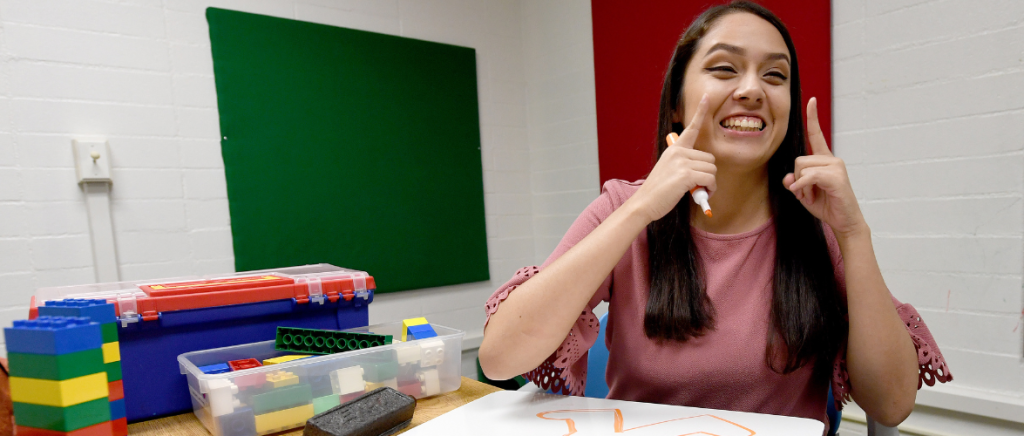
Speech-language pathology assistants (SLPA) serve as support personnel who implement treatment plans, under the supervision of a speech-language pathologist (SLP). Treatment can address impairments in speech, language, hearing, cognition, or swallowing. SLPAs might work with children or adults in settings that include clinics, private practices, schools, hospitals, skilled nursing facilities, and in-home care.
Current licensing requirements in California
How to become an SLPA varies by state. In California, SLPAs must be licensed by the state. Six items are required for the license application: the application, a passport photo, fees, printed copies of transcripts (in an envelope sealed by the university), a photocopy of your diploma, fingerprints (as indicated on the application), and a completed verification form.
Additional requirements include-
Applicants must have one of the following college degrees
- Associate of arts or sciences degree from a speech-language pathology assistant program accredited by the Accrediting Commission for Community and Junior Colleges, Western Association of Schools, and Colleges, and approved by the Board OR
- A bachelor’s degree in speech-language pathology or communication disorders from an institution listed in the “Accredited Institutions of Postsecondary Education” handbook issued by the American Council on Education. Bachelor’s degree programs generally do not meet the requirements need for an SLPA license unless they specifically build it into the training program.
Your SLPA specific course work will ensure that you have the following training:
- Ethics course (1 hour)
- Universal safety precautions course(1 hour)
- Patient confidentiality training course (1 hour)Completed field work placement (supervised; 100 hours minimum)
There are three options for meeting the field work placement:
- Field work through an accredited associates degree program
- Field work through an undergraduate clinical experience as part of a 4-year bachelors’ program
- Through workplace experience documenting 9-months of out-of-state work as a licensed SLPA
- The fieldwork must be supervised and the supervisors must submit a “Responsibility Statement for Supervisors of a Speech-Language Pathology Assistant” form within 14 days of the start of supervision. This form lists the responsibilities and commitments of the supervisor, so read through it carefully
- Field work involves supervised direct client care. Observation hours do not count towards your field work. Guided observations, which involves observation with a debrief session to build your understanding of what you observed, is not the same as field work
If you are a current student or alumnus with a major in communication sciences and disorders
The graduation requirements for the Bachelor of Arts in Communication Sciences and Disorders at the University of Redlands DOES NOT meet all of the licensing requirements due to the lack of a fieldwork placement and SLPA-specific training.
You can choose to enroll in a program that offers fieldwork placement and related courses to supplement your undergraduate training. According to licensing guidelines, fieldwork hours must be done through an established college or university process. U of R DOES NOT offer fieldwork hours and cannot sign-off on any hours obtained in an off-campus clinical setting.
A list of programs offering fieldwork placements can be found at the California Department of Consumer Affairs.
If you are a current student or alumnus with a major other than communication sciences and disorders
Coursework and fieldwork requirements can be met through an accredited institution that offers the required coursework and fieldwork placement. A current list of board approved associate degree programs can be found at the California Department of Consumer Affairs
Becoming an American Speech-Language Hearing Association certified SLPA
The American Speech Language and Hearing Association (ASHA) offers a certification for SLPAs. The certificate is not the same as the state license. The license is required to practice in the state of California, wherein the certificate is not required. Information about ASHA certification can be found at the ASHA Assistants Program
In addition to the standard requirements for obtaining an SLPA license, ASHA has the following requirements for obtaining and maintaining an SLPA license–
- SLPA education modules – For ASHA – only if required in your pathway
- Passing an SLPA certification exam
- Apply
- Initial application fee
- Pay an annual certification maintenance fee
- Completion of the certification maintenance assessment module (MOCA module) every 3 years
ASHA identifies several benefits associated with SLPA certification. Certification gives you access to the ASHA publications to help you engage in evidence-based practice. ASHA membership gives you access to ASHA community groups and the Special Interest Groups that will help you build support networks centered around specific topics or shared interests. Additionally, ASHA has worked to provide guidance on defining the scope of practice for SLPAs and training requirements.
Additional resources
Guide to becoming and SLPASLPAs and Early Childhood Education
The University of Redlands Truesdail Center
This resource was written by Maria L. Muñoz, Ph.D., CCC-SLP. Dr. Muñoz is a professor at the University of Redlands Department of Communication Sciences and Disorders.

